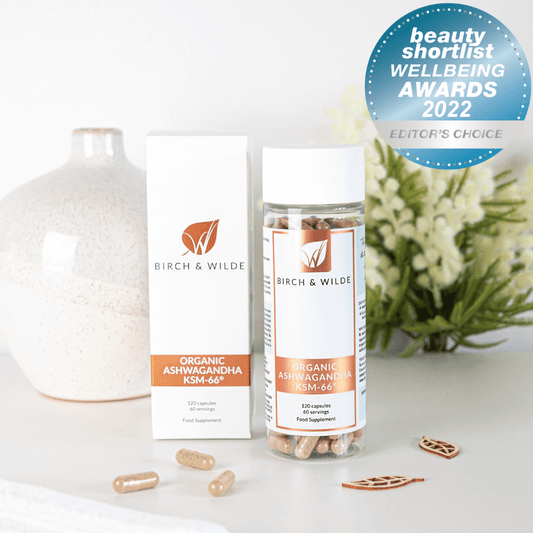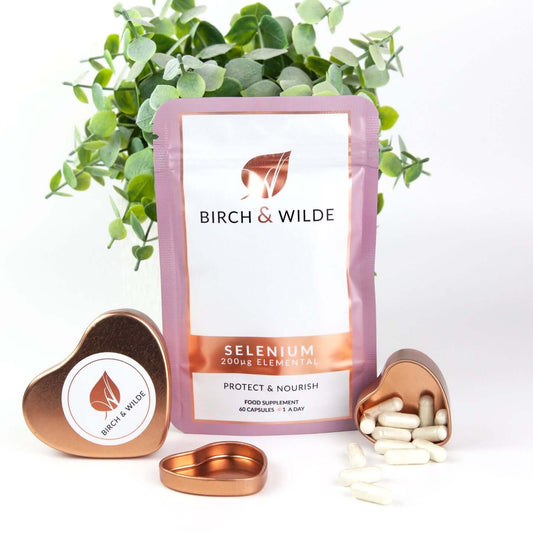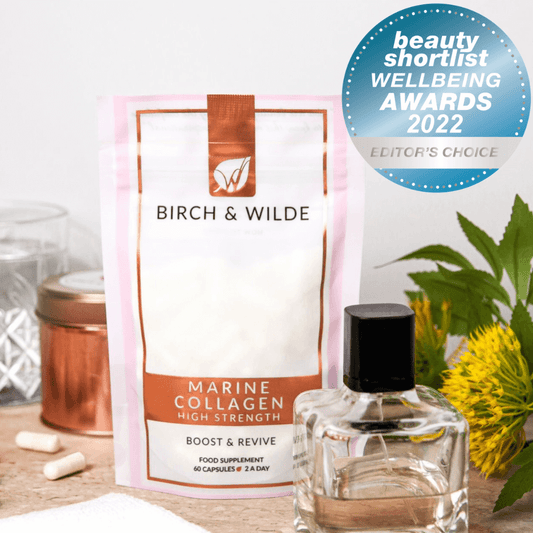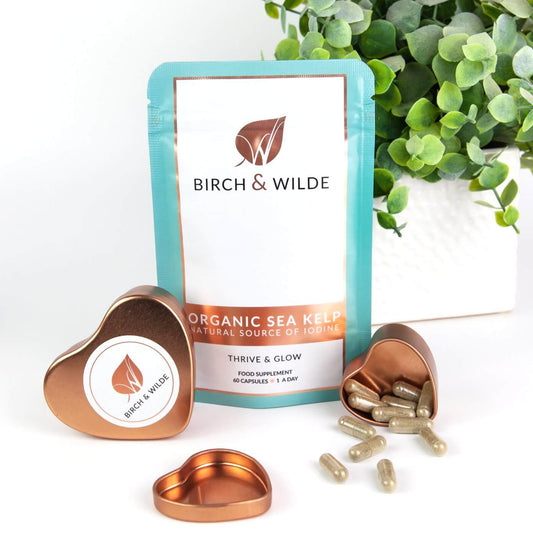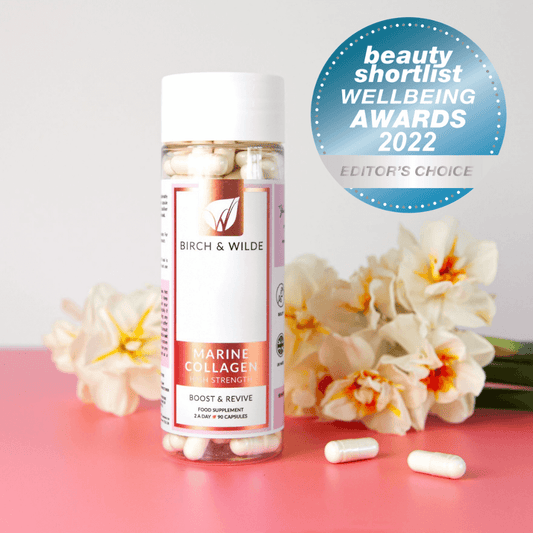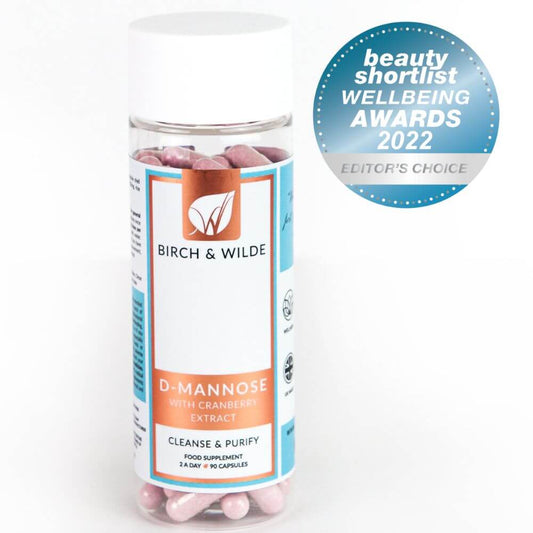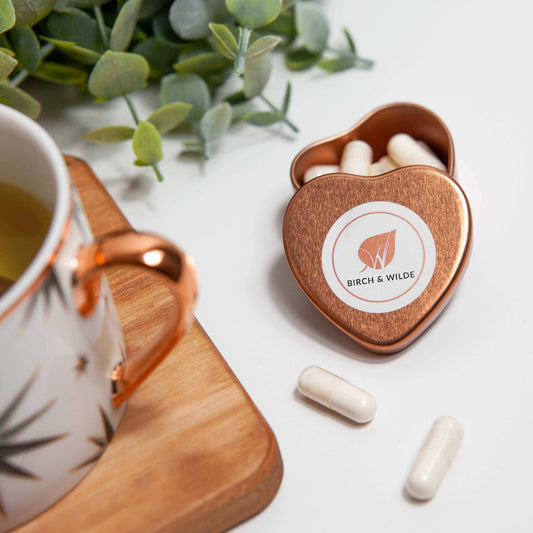BEAUTIFUL B COMPLEX: And Why You NEED It To Feel Fabulous on a Daily Basis!


There are a bevy of beautiful B vitamins which, when combined, make up a supplement known as B Complex. When Vitamin B deficiencies occur symptoms can include poor concentration, muscle pains or cramps, anxiety, skin conditions such as eczema or dermatitis, fatigue, headaches and anaemia. And they are not just limited to this. The impact on your overall wellbeing can be enormous!
B vitamins are essential for maintaining good general health and energy levels – the details of which you will get to know below. Eating a healthy, balanced diet will help to include these essential B beauties.
So let’s break it down to look at each of our beautiful B’s in turn to see exactly what each one does and just why they are so important (both individually AND together).
Vitamin B1, also known as Thiamin
This vitamin plays an essential role in converting food into energy and in the transmission of nerve impulses. Thiamin is crucial in a healthily functioning nervous system and because your nervous system has a powerful effect on mood and alertness it is referred to as the ‘morale vitamin.’
Often this vitamin is used as a mood booster; studies have shown that those with a high Thiamin intake are less likely to suffer from anxiety or depression. It is also beneficial to memory function and contributes to increasing energy levels and lowering blood pressure.
Thiamin is easily destroyed by alcohol, caffeine and stress. The good news is that rich dietary sources of this vitamin are whole grains and brown rice, yeast extract, peas and pulses.

Vitamin B2 also known as Riboflavin
This ‘beautiful B’ has immune boosting properties and bolsters your immune system by helping to form antibodies. It also works with enzymes to convert proteins, fats and carbohydrates into a readily available form for your cells to absorb.
Vitamin B2 deficiency is common owing to the fact that it is easily destroyed by sunlight (so that bottle of milk left on the doorstep – old school! - or on the kitchen countertop can lose all it’s Riboflavin in just a couple of hours). Symptoms of deficiency include hair loss, eczema, mouth ulcers and sore or cracked lips.
The benefits of Riboflavin include protection against cataracts, higher concentration and alertness, and relief from PMS. Dietary sources of this nutrient include yeast extract, whole grains, cheese, milk and leafy green veg.

Vitamin B3, otherwise know as Niacin
Like its previously mentioned counterparts, Niacin is also crucial for the release and transformation of foods into energy in the body. It helps in maintaining healthy skin, a healthy nervous system, digestive system and brain function. It also aids in balancing blood sugar and blood pressure levels.
Studies show that those with a low level of Niacin are more likely to suffer from depression and poor self-esteem; anxiety or depression are indeed symptoms of a deficiency as are fatigue, poor memory and eczema.
The benefits of Vitamin B3 include boosting mood, maintaining a healthy heart and circulation, and keeping your digestive system tip-top. It can even ease attacks of diarrhoea.
Readily available dietary sources of this vitamin are lean meat, whole grains, cheese, fish, eggs and wholemeal bread.

Vitamin B5, known as Panthotenic Acid
Beautiful B5 is highly beneficial in boosting the immune system, improving energy levels and reducing stress. Some deficiency symptoms include fatigue, anxiety, poor concentration and headaches.
Pantothenic Acid reduces stress levels by both controlling the action of the adrenaline glands, which go into high functioning in times of stress; it lowers cholesterol, helps fight infection and helps to rejuvenate the skin, hair and heal wounds.
Natural dietary sources of this vitamin include royal jelly, liver and kidneys, nuts, whole grains and eggs.

Vitamin B6, known as Pyridoxine Hydrochloride
This beautiful B is necessary to keep your nervous system in good working order, your energy levels up and for the formation of antibodies that help fight infection. Among the deficiency symptoms are water retention, fatigue, anxiety and anaemia.
The benefits of this B beauty are that it helps regulate the sleep cycle and moods by affecting the production of melatonin and seratonin in the brain. The best natural dietary sources of this vitamin are wheat-germ, bananas, chicken, fish, Brussels sprouts and potatoes.

Vitamin B7, otherwise referred to as D-Biotin
The seventh of our ‘Beautiful B’ vitamins plays an important role in the metabolism of fatty acids which are essential for healthy skin, hair, nerves, plus many other functions of your body.
Because of this it may help to prevent premature hair-loss and greying, and it may aid in weight loss, and is also used to treat eczema and dermatitis. Some of the signs you may be deficient are eczema, premature hair-loss or greys, and exhaustion.
If you are looking to boost your B7 through your diet, then you might want to try foods such as peanuts, almonds, egg yolks, walnuts, chicken and sesame seeds.

Vitamin B9, commonly known as Folic Acid or Folate
Most widely known for being essential in fertility, Folic Acid works with the other B vitamins and is essential for the production of red blood cells and the metabolism of proteins and sugars.
It is involved in the transmission of the genetic code from mother to baby in the early stages of pregnancy. It is crucial for the healthy foetal development of the spinal cord and this is the reason should be taken before conception and during the first trimester of pregnancy to reduce the risk of spina-bifida.
Deficiency symptoms include lack of energy and appetite, anaemia and cracked lips. This vitamin helps to prevent some birth defects, can prevent anaemia and promote healthier looking skin.
It found in many foods but can be easily destroyed especially by cooking; good sources of it include wheat-germ, black-eyed beans, green leafy veg, peanuts, bananas and avocado.

Vitamin B12, Cobalamin / Methylcobalamin
This beautiful B is essential for a healthy nervous system, cell division and the production of red blood cells. Signs that you might be deficient are poor hair condition, fatigue, anxiety, eczema and poor memory function.
It is widely used to improve conditions that require a boost to energy levels, and it is also involved in the production of the feel-good hormones dopamine and serotonin which affect mood and sleep patterns.
This B beauty is not found in high quantities outside of animal sources – the most common sources being liver, beef, pork, white fish, eggs, yeast extract and milk. However, many non-dairy milk-alternatives are now fortified with it. For this reason, it is very often supplemented, especially among vegetarians and vegans.
As a supplement B12 comes in synthetic form, known as Cyanocobalamin, and natural form, Methylcobalamin. Methylcobalamin is often preferred due to it being the more natural version and still being brilliantly bio-active for absorption by your body.
So now you know about the bevy of beautiful B vitamins that make up B Complex, you will also be interested to know that other vitamins and compounds are often also included within the complex to boost general health or to help with the absorption or function of the B vitamins.

Most commonly, these can include:
- Inositol – helps lower cholesterol, aids redistribution of body fat and promotes healthy hair
- Ascorbic Acid (Vitamin C) – accelerates healing and boosts immune system
- Para Amino Benzoic Acid (PABA) – keeps skin healthy and smooth, restores natural hair colour
- Choline – produces a soothing effect in the body and aids memory function
- Alpha Lipoic Acid (ALA) – a high potency antioxidant
The benefit of topping up B vitamins as a Complex rather than individually, is mainly down to absorption, as they all work together and this makes a B Complex very efficient in terms of results.
Some of the Bs, such as B12, just aren’t as readily available as food sources – particularly to vegetarians and vegans. Something else to consider is cost – ultimately you will spend less on a high quality B Complex supplement than you would sourcing all the individual vitamins as supplements.
So, what are the best ways to top up and maintain good levels of your Beautiful Bs?
Stock up on whole grains, eggs, leafy green veg, chicken, fish, milk, nuts, avocados and wheatgerm and you’ll be off to a great start.
Then of course you can add a supplement: when choosing your brand focus on looking for high quality, high purity. This is usually denoted by a high NRV (your daily allowance expressed as a percentage) on the label, and make sure the high NRV relates to all of the vitamins in the complex (some may vary).
You’ll soon ‘B’ bouncing around in no time! So bring on those beautiful B’s as it’s really time to start feeling good!
Stay well and happy beautiful one, lots of love,
P.S. Enjoyed our blog? You may like to take a look at our others:
SLEEP: Part 2 - The Top 9 Lifestyle Tweaks To Help You Sleep
BEATING THE WINTER BLUES: 12 Top Tips for Staying Happy and Healthy This Winter









